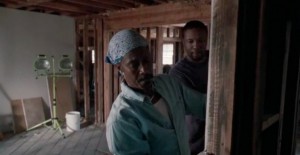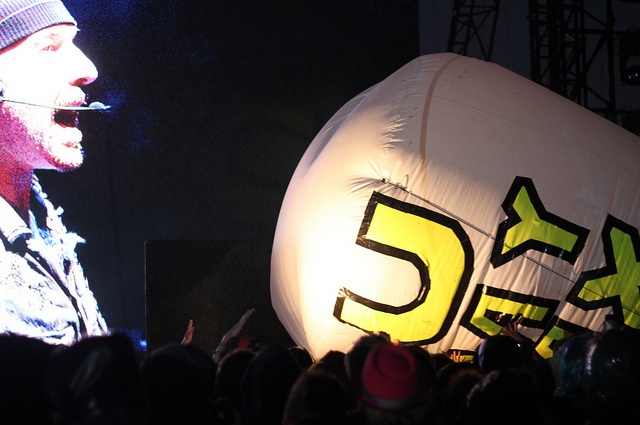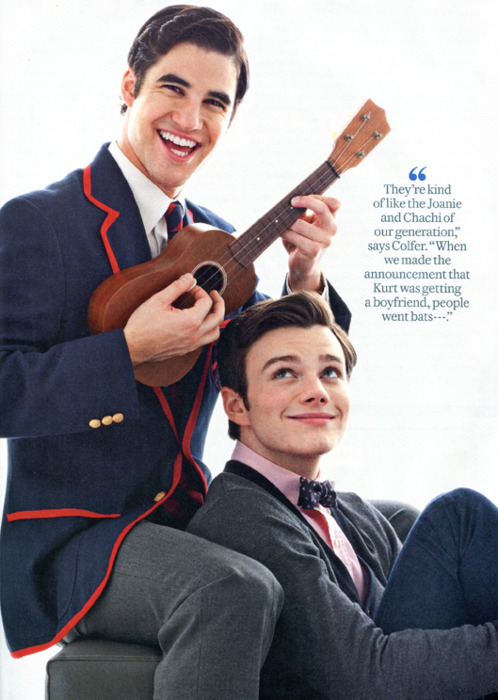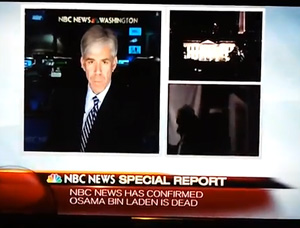
As culture becomes increasingly digitized, arguments for the “dematerialization” of media are becoming commonplace. However, media have always been, and remain, embedded in and structured by material objects, networks, and practices that delimit their uses and meanings.
Read more »
Tags: materiality
Posted in Film, Global, Industry, Internet, Music, Perspectives, Radio, Technology, TV | Comments Off on The Materiality of Media
![The Rise and Fall of @Sutterink: Showrunners [Off] Twitter III](/wp-content/uploads/2011/08/SutterTwitter-223x300.jpg)
While it was perhaps inevitable that Sutter’s lack of a filter would result in his Twitter account becoming a liability, the rise and fall of “@sutterink” has more to do with public perceptions of Twitter than with his actual commentary.
Read more »
Tags: Kurt Sutter, Media, showrunners, Sons of Anarchy, Twitter
Posted in Internet, Showrunners on Twitter, Technology, TV, TV | 7 Comments »

While we are often quick to point out the flaws in the Emmy nomination process, lamenting the absence of our favorite programs, often the nominations are guided as much by eligibility as by voter subjectivities.
Read more »
Tags: 2011, Downton Abbey, Eligibility, Emmy Nominations, Luther, Miniseries, Primetime Emmys
Posted in TV, TV | 2 Comments »

Treme’s focus on how its culture and cultural economies are created and presented through music and cuisine has meant a majority of its almost 22 narrative hours watching musicians struggle with bar owners, the recording business, the law and each other.
Read more »
Tags: Culture Industries, HBO, television, Treme
Posted in Columns, Music, Music, Politics, Treme, TV, TV | Comments Off on You Have Friends That Want You Back Home

Surely in the final minutes of the last day of the Glastonbury rock festival, people are supposed to look sick, bedraggled and filthy, following a weekend of unfettered debauchery, but those kids are just too clean!. Come to think of it, why is Beyonce headlining anyway?
Read more »
Posted in Celebrity/Stardom, Celebrity/Stardom, Current Events, Industry, Music, Music, Perspectives, Politics, TV | Comments Off on Whatever Happened to the Devil’s Music?

Fashion Police is a bundle of contradictions—it is both celebratory and critical, sophisticated and vulgar, insightful and adolescent.
Read more »
Tags: celebrity culture, Fashion Police, Joan Rivers
Posted in Perspectives, TV | Comments Off on The Guilty Pleasure of the Red Carpet Fashion Smackdown

Could the demise of so many daytime soaps be causing a return to form for a genre fans have long felt was losing its way? The rapidly changing world of U.S. daytime television has as many highs and lows as a juicy soap storyline these days.
Read more »
Tags: daytime television, network television, soap opera
Posted in Current Events, Perspectives, TV, TV | 3 Comments »

The challenge facing Tremé (and every other media representation of New Orleans) is finding a way to balance a celebration of the city’s unique cultural contributions with an acknowledgment of its more conventional, and often more damning, histories, memories, and contemporary realities. Week 6’s episode “Feels Like Rain” responds to this challenge, self-consciously,...
Read more »
Tags: music, race/ethnicity, television, Treme
Posted in Music, Music, Perspectives, Politics, Treme, TV | 2 Comments »

Just as Chris Colfer provides a model for queer kids who have not yet been represented, so Darren Criss provides an equally significant alternative model for queer straightness.
Read more »
Tags: crooners, Darren Criss, gender/representation, Glee, sexuality
Posted in Columns, Glee Club, Perspectives, TV | 11 Comments »

There's an illusion of transformative work here – although this seems to alter the rules of the Whoniverse, in fact it leaves all the game pieces in play as they were.
Read more »
Tags: author function, authorship, canon, Doctor Who, fans, Neil Gaiman, showrunners
Posted in Columns, Current Events, Doctor Who & Authorship, Perspectives, TV, TV | 5 Comments »

While season one seemed to chart the resiliency of New Orleans as a place, defined by its people and its culture, season two is digging into localized spaces and demonstrating their continued vulnerability in the wake of the storm.
Read more »
Tags: Ladonna, On Your Way Down, Season 2, space
Posted in Treme, TV, TV | Comments Off on The Rhythm of a City Out of Sync: The Disrupted Spaces of Treme

Chris Colfer’s is the first solo voice in recent memory to break into the mainstream as gender-queer, and as such, has become the site of both euphoria and anxiety.
Read more »
Tags: Chris Colfer, Glee, Kurt Hummel, singing
Posted in Columns, Glee Club, Perspectives, TV | 8 Comments »

The Learning Channel's Extreme Couponing evokes surprise, and even disgust for the lengths to which people go to accumulate coupons, acquire products, and display their stockpiles. It fails, however, to thoroughly explore people’s motivations for their actions.
Read more »
Tags: consumption, Extreme Couponing, Michel de Certeau, reality television, tactics, TLC
Posted in Columns, Perspectives, State of Reality TV, TV | 3 Comments »

The popularity of Glee, and, in particular, these two singers, has made me think that American culture may finally be starting to break with the gender norms of male singing performance that have persisted for the last 80 years.
Read more »
Tags: crooners, gender, gender/representation, Glee, masculinity, Representation, sexuality, singing
Posted in Columns, Glee Club, Perspectives, TV | 3 Comments »

As one of the first events of this magnitude that has taken place squarely within the Twitter era, Osama Bin Laden's death reveals the challenge facing traditional media outlets when Twitter runs rampant with speculation (and real reporting).
Read more »
Tags: Media, Mike Viqueira, MSNBC, Osama Bin Laden, Twitter
Posted in Internet, Internet, Politics, Politics, TV, TV | 5 Comments »


![The Rise and Fall of @Sutterink: Showrunners [Off] Twitter III](/wp-content/uploads/2011/08/SutterTwitter-223x300.jpg)













